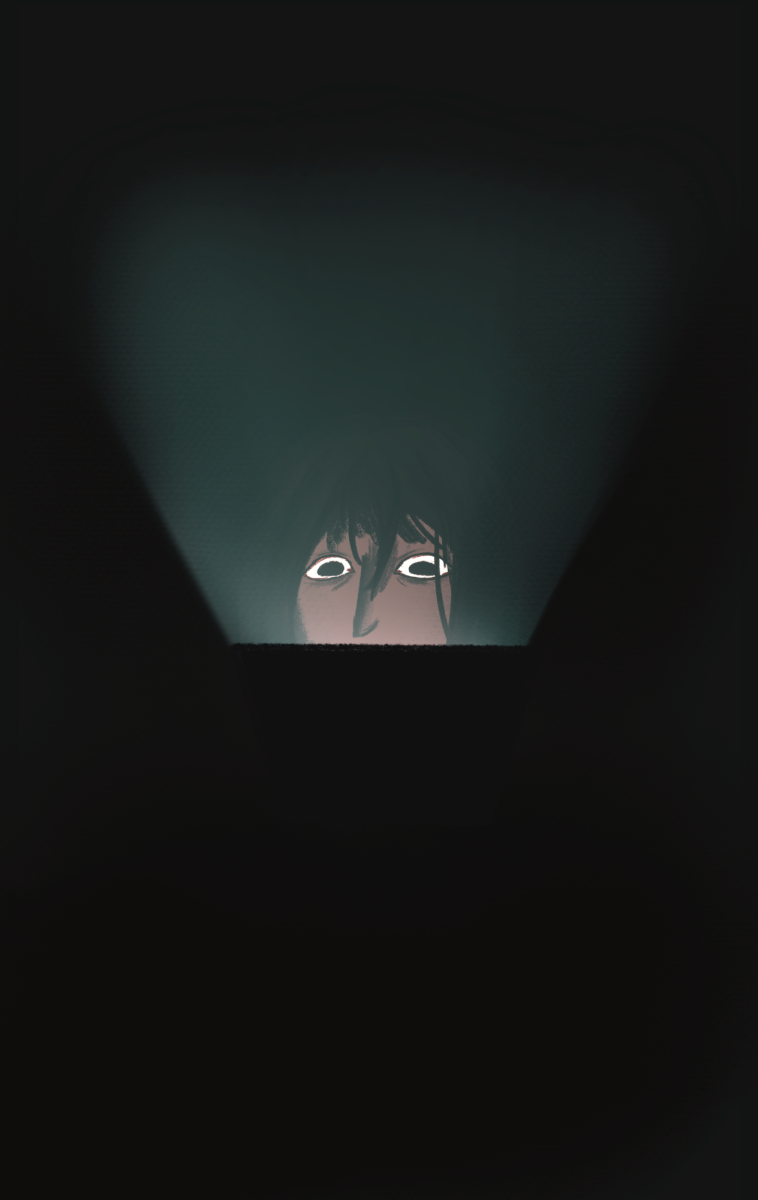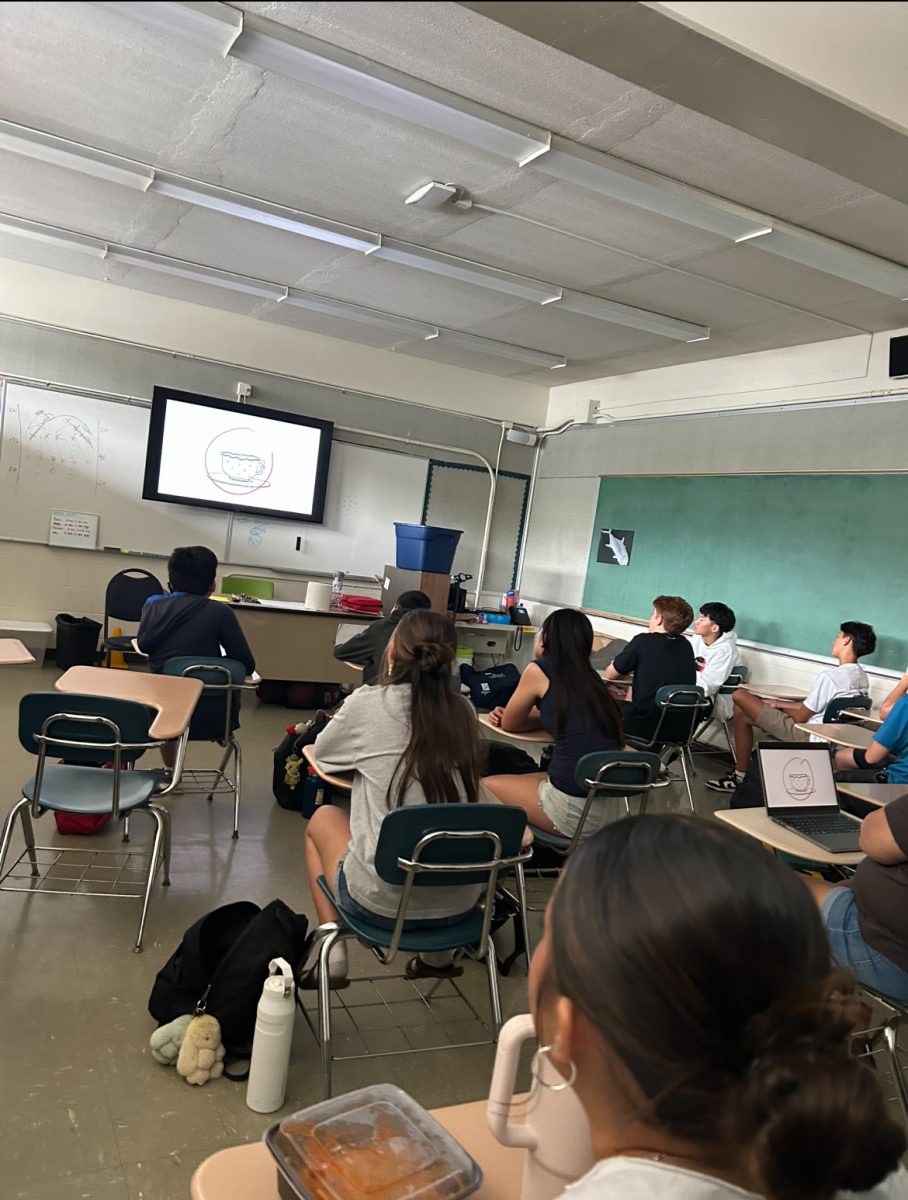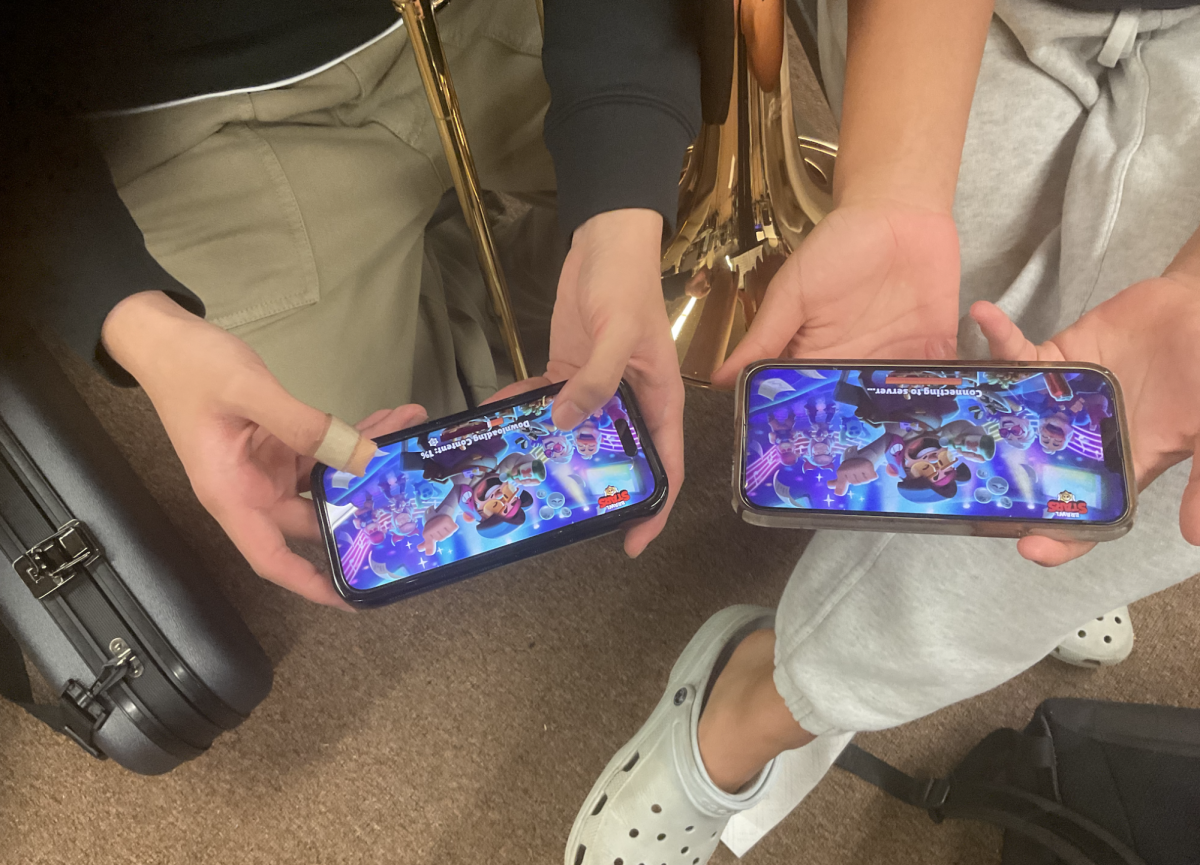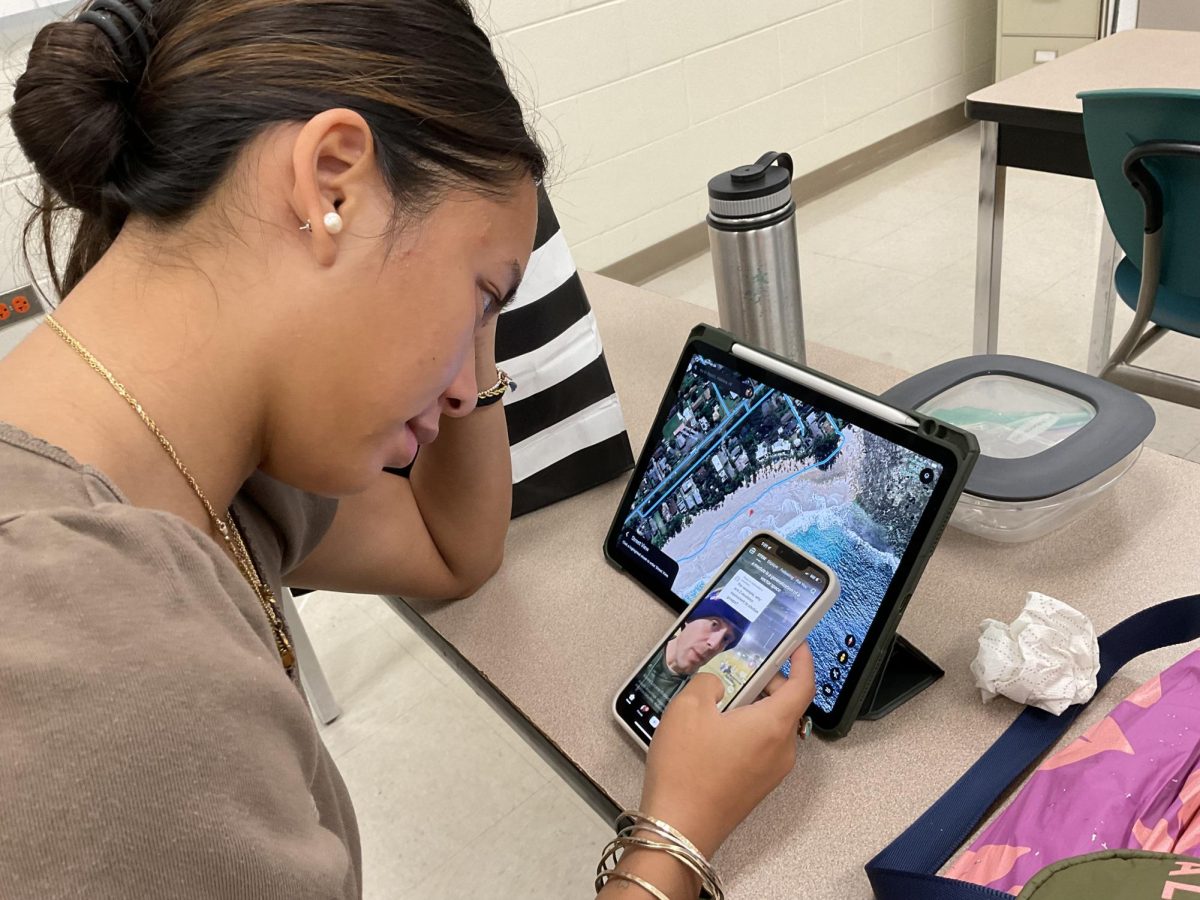Have your teachers ever told you about how harmful screen time can be to you and other students, or maybe even hosted a meeting to discuss how it can damage your brain? Despite these warnings, we use screens for school work throughout the day, while experts say people should limit screen time to one to two hours a day.
“Everything can blend together and it becomes difficult to maintain healthy relationships with our screens,” eighth grade English teacher Lillian Lenec said.
The effects of screen time are severe, and it’s important to recognize that since technology plays a central role in most school and work environments. According to a literature review on the effects of screen time on adolescents published in 2023 by National Institutes of Health (NIH), health issues caused by excessive screen time not only affect a child’s physical health, but mental health as well.
“I would say that I sometimes get headaches, and then when I go to sleep, I find it hard to shut my brain off because I'm so used to seeing this bright white light in front of me,” freshman Kim Tse-Castro said.
Studies from psychologists and doctors prove that too much blue light or time on screens can deeply affect a child’s normal growth and development. Excessive screen time has the potential to harm the development of a child's motor skills, as well as their communication skills. In addition to negative development outcomes, studies show that when children are given unrestricted freedom to screens, they can become reliant on their devices due to their deteriorating cognitive abilities.
Excessive screen time is not only harmful to how children and adolescents develop, but it can also be detrimental to how they function in their daily lives. Children and adolescents often experience sleep deprivation due to being addicted to screen time and blue light.
“I would say yes, it affects my sleep schedule. I stay up until two in the morning just to finish an assignment while everyone else in my house is asleep. It’s hard to function throughout the day like that,” Tse-Castro said.
This can cause them to develop unhealthy sleeping habits, and to become exhausted throughout the day and unable to focus on daily tasks. This not only applies to phones, but also to the time students spend using their school iPads trying to get schoolwork finished.
Excessive screen time may also lead to the development of bad eating habits and lack of physical activity. Because children and adolescents spend so much time on screens, the lack of physical activity and sleep can add on to stress, anxiety and depression. This also applies to eating regular meals, as children may take screen time over eating meals due to addiction.
If screen time isn’t the answer to better educating students due to the amount of health issues it can cause, then what would be a more effective and healthier option for adolescents? Multiple studies have shown that studying and providing education on paper may be the solution.
“I do believe that we have lost the ‘pen to paper’ experience in schools. Research is clear that connecting your thoughts on paper provides a deeper understanding of the content at hand,” Lenec said.
Studies from the NIH have shown that although introducing technology to students has educational benefits, it is equally detrimental to how children develop. NIH research has shown that there are negative effects to both screen time on media and academics, where the increase of screen time correlates with an increase in low grades.
Screen time used for academics has also proven to create short attention spans among students and cause a decrease in abilities to focus on tasks. Children under the age of five already exposed to television may have already damaged their cognitive and social skills required in adulthood. This can affect them later in life, especially during adolescence years when grades increasingly become more significant to education.
This is why using pen-to-paper is more effective for children and adolescents in order for them to succeed in adulthood. If screen time detriments teenager’s skills that are important for how they function, it would be beneficial for students to learn the way their parents have: on paper.
“For me personally, I like my work physically because then I'm able to practice my writing skills and also gives me more motivation to not just look at the answer and get it straight away. It gives me motivation to actually learn the topic and transcribe it onto the paper.” Tse-Castro said.
Online work may be quicker, convenient and organized, as it doesn’t require much of students’ engagement or understanding to simply type notes on a screen. According to Paris Corporation’s article on The Benefits of Paper vs. Digital Learning studies have shown that online education doesn’t have the same benefit for learning as it does on paper.
From my own personal experience, writing notes on paper in my notebook has actually improved my understanding of material in multiple classes and even improved my test scores.
“I think it would be better for students to get more [work on paper] because it's less harmful overall,” Tse-Castro said.
Technology may be the future, and it’s important to teach younger generations how to use it properly before adulting. It is just as significant to use it properly as it is to learn and develop more effectively, especially for adolescents.
Excessive screen time at school
Artwork for Excessive Screen Time article
More to Discover













